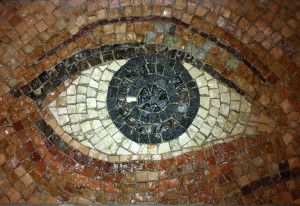 Two treatments for eye cancer pioneered by Dr. Paul Finger are saving vision and helping patients keep their eyes. Dr. Finger talked about these developments in a wide-ranging interview with Ivanhoe:
Two treatments for eye cancer pioneered by Dr. Paul Finger are saving vision and helping patients keep their eyes. Dr. Finger talked about these developments in a wide-ranging interview with Ivanhoe:
“The most common primary intraocular tumor is melanoma. They are like malignant melanomas of the skin, but they are hidden inside the eye. At The New York Eye Cancer Center, more than 90 percent of patients with intraocular melanoma can be treated by sewing a disc-shaped radioactive implant on the eye, as to cover the tumor. It is left there for one week while it kills the tumor.”
Tumors surrounding the optic nerve prove particularly difficult to treat. After some research, Dr. Finger developed a special technique to treat these tumors. A disc-shaped radiation implant known as the “Finger’s slotted plaque” can accommodate the optic nerve.
“This innovation allows patients who would typically have their eye removed to keep their eye and vision. What I created allows us to treat a whole group of patients [who] were untreatable [or suffered recurrence].”
Don’t forget to ask your doctors about their results. We are ready to report our results treating your type of tumor.
Interested in preserving your vision? Dr. Finger also discovered a widely-used cancer drug that can help preserve vision in patients undergoing eye cancer treatment.
“Avastin was originally used for colon cancer to prevent new blood vessels from forming. If you starve a tumor of new blood vessels, it can’t grow, or at least has a hard time growing. Avastin is used along with chemotherapy. In the eye, it was primarily used to treat new and abnormal blood vessels. For example, it was used to dry, ‘wet’ macular degeneration. When I saw that it was successful for wet macular degeneration, I knew that it would be good for my patients with radiation retinopathy… I found that Avastin stops radiation-induced new blood vessels from growing, but it also prevents new and old blood vessels from leaking – the leaking is what used to take away most of my patient’s vision. Now, for the first time, there is a treatment. “
Dr. Finger was the first eye cancer specialist to discover that these anti-VEGF drugs could suppress radiation retinal damage and preserve vision.










Keeping vision with eye cancer should be the goal with any cancer treatment. Finger’s slotted plaque sounds like a real innovation since it allowed people to keep their vision. If I ever had aye cancer I would want to keep my vision.